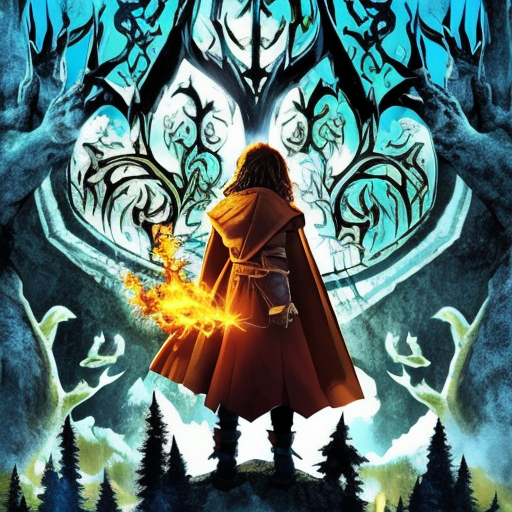Fantasy Literature: A World of Imagination and Wonder
Fantasy literature is a genre that transports readers to extraordinary realms filled with magic, mythical creatures, and epic adventures. It captivates the imagination and offers an escape from reality, allowing readers to explore fantastical worlds and embark on thrilling quests alongside unforgettable characters. This summary will delve into the origins of fantasy literature, its defining characteristics, and its enduring popularity.
Origins of Fantasy Literature
Fantasy literature has a rich history that dates back centuries. Its roots can be traced to ancient myths, folklore, and legends, which were often passed down orally from generation to generation. These tales of gods, heroes, and supernatural beings laid the foundation for the fantastical elements found in modern fantasy literature.
One of the earliest examples of fantasy literature is the epic poem “The Epic of Gilgamesh,” written in ancient Mesopotamia around 2100 BCE. This tale follows the adventures of Gilgamesh, a demigod king, and his quest for immortality. It features mythical creatures, divine intervention, and a journey to the underworld.
Defining Characteristics of Fantasy Literature
Fantasy literature is characterized by several key elements that set it apart from other genres. These include:
1. Magic and Supernatural Elements: Magic is a fundamental aspect of fantasy literature. It can take various forms, such as spells, enchanted objects, or magical creatures. Supernatural beings like dragons, elves, and witches often inhabit these fantastical worlds.
2. World-Building: Fantasy authors create intricate and immersive worlds that are distinct from our own. They establish unique rules, histories, and cultures, allowing readers to fully immerse themselves in these fictional realms.
3. Hero’s Journey: Many fantasy stories follow the classic hero’s journey archetype, where a protagonist embarks on a transformative quest. They face numerous challenges, encounter allies and enemies, and ultimately undergo personal growth.
4. Themes of Good vs. Evil: Fantasy literature often explores themes of morality and the battle between good and evil. Heroes are pitted against powerful villains, and their actions have far-reaching consequences for the fate of their worlds.
Enduring Popularity
Fantasy literature has stood the test of time and continues to captivate readers of all ages. Its enduring popularity can be attributed to several factors:
1. Escapism: Fantasy literature offers an escape from the mundane realities of everyday life. It allows readers to venture into magical realms where anything is possible, providing a much-needed respite from the ordinary.
2. Imagination and Creativity: Fantasy literature sparks the imagination and encourages creative thinking. It invites readers to envision fantastical creatures, landscapes, and scenarios, fostering a sense of wonder and curiosity.
3. Universal Themes: Despite its fantastical elements, fantasy literature often explores universal themes that resonate with readers. It delves into the complexities of human nature, the power of friendship, and the importance of courage and perseverance.
4. Character Development: Fantasy literature is known for its memorable characters who undergo profound transformations throughout their journeys. Readers become emotionally invested in these characters, forming deep connections and experiencing their triumphs and tribulations.
5. Expanding Boundaries: Fantasy literature pushes the boundaries of what is considered possible, challenging readers to question the limitations of their own reality. It encourages them to think outside the box and imagine alternative worlds and possibilities.
In conclusion, fantasy literature is a genre that transports readers to extraordinary realms filled with magic, mythical creatures, and epic adventures. Its origins can be traced back to ancient myths and legends, and it is characterized by elements such as magic, world-building, and the hero’s journey. The enduring popularity of fantasy literature can be attributed to its ability to provide escapism, spark imagination, explore universal themes, develop memorable characters, and expand boundaries. So, whether you’re a fan of dragons, wizards, or epic quests, fantasy literature offers a world of imagination and wonder waiting to be explored.












